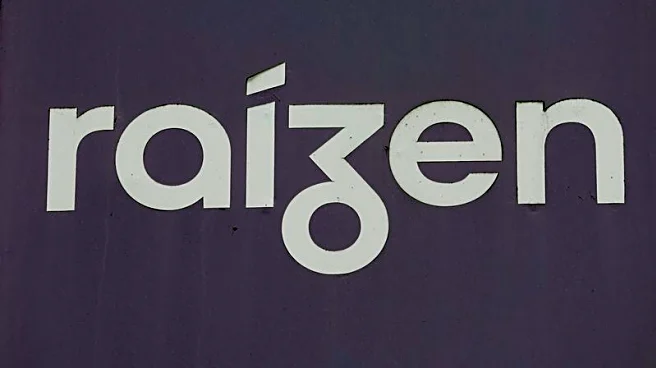What's Happening?
Healthcare facilities are facing significant challenges in managing unstructured data, which includes information from faxes, scanned documents, and handwritten forms. These data types require manual intervention
to be integrated efficiently into healthcare systems. Small and under-resourced facilities, such as skilled nursing facilities and behavioral health clinics, often lack certified electronic health records (EHRs) and rely on legacy technologies like digital fax for data exchange. Artificial intelligence (AI), particularly machine learning and natural language processing (NLP), is being explored as a solution to transform unstructured data into structured formats, facilitating better interoperability and real-time data exchange. This approach aims to level the playing field for information sharing, enabling facilities to provide coordinated care despite technological disparities.
Why It's Important?
The ability to efficiently manage and exchange healthcare data is crucial for patient care and health equity. Facilities that lack advanced technologies face challenges in accessing timely and accurate patient information, which can lead to delays in treatment and increased health inequities. By applying AI to convert unstructured data into structured formats, healthcare providers can improve data accessibility and reduce manual data entry errors. This technological advancement is particularly important for facilities serving vulnerable populations, as it can enhance care coordination and outcomes while reducing costs. The adoption of AI-driven solutions could significantly impact the healthcare industry by promoting tech equity and improving interoperability across diverse care settings.
What's Next?
Healthcare organizations are likely to continue exploring AI and other digital solutions to address interoperability challenges. As AI technologies become more accessible, smaller facilities may adopt these tools to improve data exchange and patient care. Policymakers and healthcare leaders may advocate for increased tech equity to ensure all facilities can participate in modern data exchange frameworks. The development of national data standards, such as Fast Healthcare Interoperability Resources (FHIR), will continue to play a role in shaping the future of healthcare data management, although efforts must be made to ensure these standards do not exacerbate existing tech disparities.
Beyond the Headlines
The integration of AI in healthcare data management raises ethical considerations regarding data privacy and security. As AI systems handle sensitive patient information, ensuring compliance with regulations like HIPAA is essential. Additionally, the shift towards AI-driven solutions may require workforce training and adaptation, as healthcare professionals learn to work alongside advanced technologies. Long-term, the widespread adoption of AI in healthcare could lead to significant shifts in how patient data is managed, potentially transforming care delivery models and improving health outcomes across the industry.











